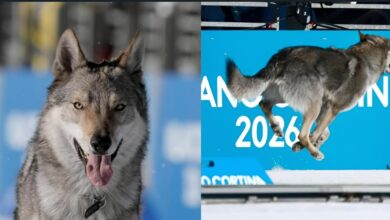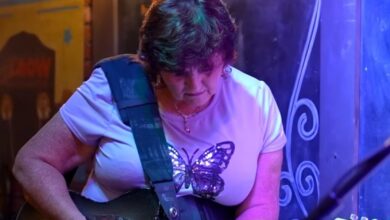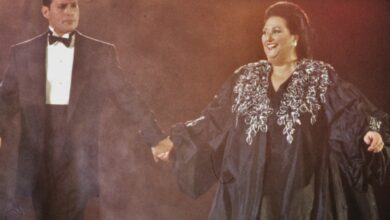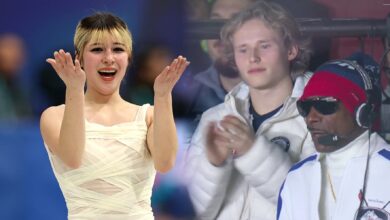KISS – “Parasite” Live at Winterland 1975: The Night Ace Frehley’s Guitar Ignited the World
Under the flickering lights of San Francisco’s legendary Winterland Ballroom, KISS took the stage on January 31, 1975, determined to leave a permanent mark on rock history. Known as a proving ground for bands on the edge of greatness, Winterland became the setting for a young group with something to prove. As the spotlights glinted off their chrome costumes and the crowd roared to life, KISS turned the night into a storm of sound and spectacle. Fans didn’t just witness a show—they were drawn into an electric ritual that still echoes five decades later.
The timing was crucial. The band had just released Hotter Than Hell, and this concert became a statement of purpose. Each riff and scream carried defiance, ambition, and the hunger of a band not yet at the top but already performing like they belonged there. For anyone who doubted whether four painted New Yorkers could become arena icons, Winterland delivered the answer in fire, smoke, and thunder. It was more than a performance—it was a baptism by distortion.
The setlist read like a blueprint for the band’s rise, each track feeding the next in escalating intensity. But one song, “Parasite,” became the center of gravity—a lightning bolt cutting through the heart of the show. On the album, it was heavy; on stage, it was volcanic. The riff struck hard and fast, sending shockwaves through the wooden hall. Here, the song wasn’t nostalgia—it was rebellion with a pulse, roaring through the speakers like it had been waiting for this exact room.
Ace Frehley’s fingerprints were all over it. Though Gene Simmons sang the original studio version, “Parasite” was Ace’s creation—rough-edged, street-born, and unmistakably his. In 1975, the track’s snarling tone and jagged riff blurred the lines between hard rock and early metal. Critics would later call it a genre bridge, but that night it was pure instinct, performed by a guitarist whose hands seemed wired directly to the amplifiers. His Les Paul didn’t just sing; it growled.
At Winterland, “Parasite” became a masterclass in controlled chaos. Peter Criss drove the song like a locomotive on fire, while Simmons’s bass shook the floorboards with unrelenting precision. Paul Stanley slashed out the rhythm like a man carving lightning in midair. And through it all, Ace floated above, channeling electricity into melody. The chemistry between them was unbreakable—four forces colliding into one unstoppable wall of sound.
Ace’s solos were the heartbeat of the night. He didn’t need speed to impress; he had swagger. His phrasing felt spontaneous, his bends alive with tension and release. Each lick landed like a spark, teasing the next explosion. Watching him play, you could sense the freedom and danger in every movement—a man utterly consumed by the song he created. That energy made the difference between good rock and greatness, and in 1975, Ace Frehley was greatness in motion.
The cameras captured it all. Even in the grainy original footage—now restored in breathtaking quality—the band’s command of the stage is undeniable. Every frame looked choreographed without ever feeling rehearsed: Gene’s demonic grin, Paul’s seductive spins, Ace’s cigarette-dangling cool, Peter’s sweat-drenched focus. They weren’t just musicians; they were living icons in the making. Winterland didn’t just film a concert—it filmed the birth of mythology.
Winterland’s acoustics played their part, too. The hall’s wooden architecture gave the drums a thunderous depth and let guitars echo like fireworks across the ceiling. When “Parasite” hit full stride, you could hear the room answering back—snare hits bouncing off beams, cheers compressed into a living pulse. The venue became a fifth band member, amplifying the danger and intimacy of every sound.
The decades since haven’t dimmed the power of that performance. Bootleg tapes and remastered clips have kept it alive, each restoration peeling back another layer of raw brilliance. Watching it now feels like time travel—a window into an era when rock still felt reckless, when every chord was a gamble. What began as a live gig in 1975 became a sacred document of a band defining its future in real time.
In the wake of Ace Frehley’s passing, the Winterland footage carries a heavier resonance. Seeing him there—24 years old, smiling between solos, his guitar screaming through “Parasite”—feels like watching immortality being forged. Every bend, every grin, every flash of light now reads like a farewell we didn’t know we were witnessing. The obituaries will speak of his influence, but this performance shows why it mattered. It isn’t nostalgia—it’s proof.
Ace’s legacy hums inside that footage like feedback at the end of a perfect take. The little gestures—his hand twitch after a bend, the smoke curling around his face, the grin that said he knew he’d nailed it—are eternal now. Winterland became not just a concert but a monument. Fifty years later, fans still return to it, pressing play to feel that jolt of danger and discovery one more time.
KISS left that stage transformed. They arrived as contenders and walked off as inevitabilities. “Parasite” wasn’t just part of their set—it was their calling card, a thunderous declaration of who they were and what rock could be. As the final chord faded and smoke filled the air, the future of heavy music had already begun to take shape, one riff at a time.
And even now, as that performance circles the internet in ever-cleaner resolution, the spirit of that night remains intact—four young men, a restless crowd, and a sound too big for its century. With Ace gone, those riffs ring out like an eternal echo—loud, defiant, and unforgettable. The fire never went out; it just keeps burning on screens around the world, every time someone hits play.





